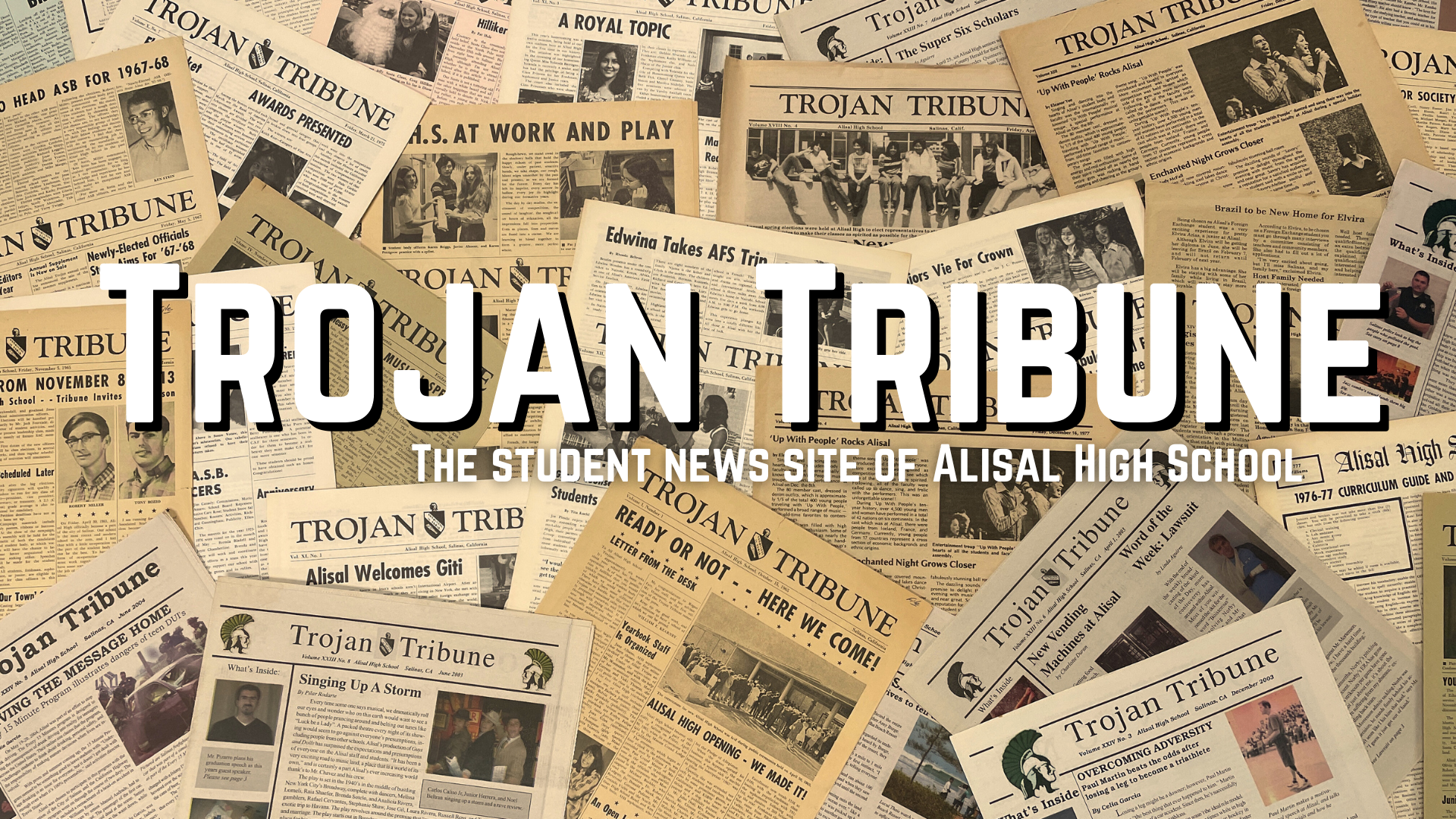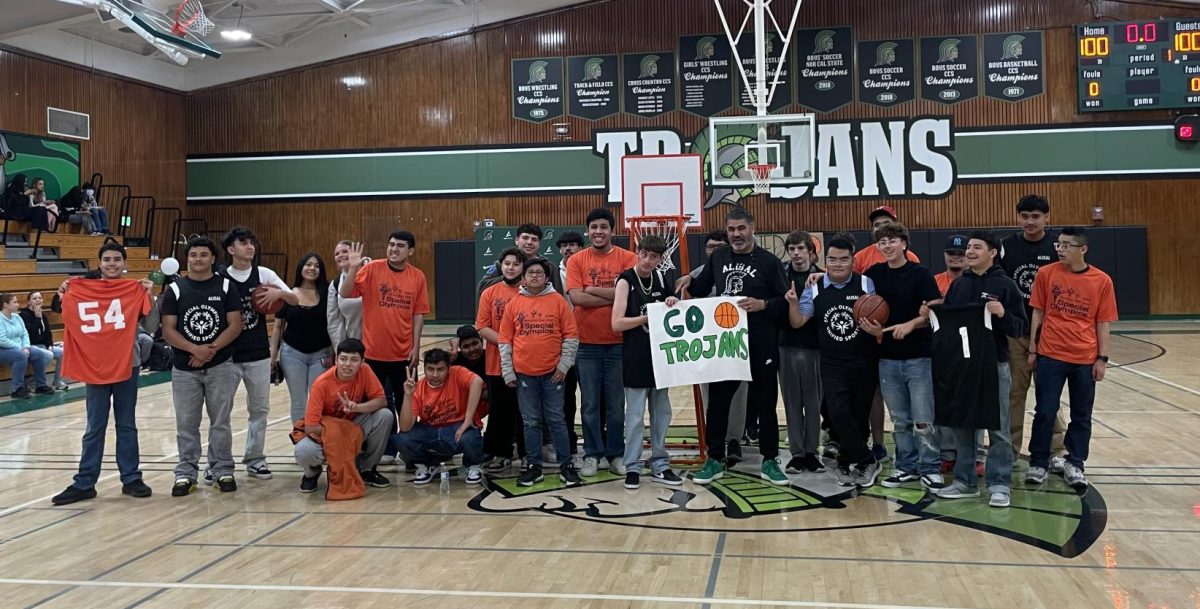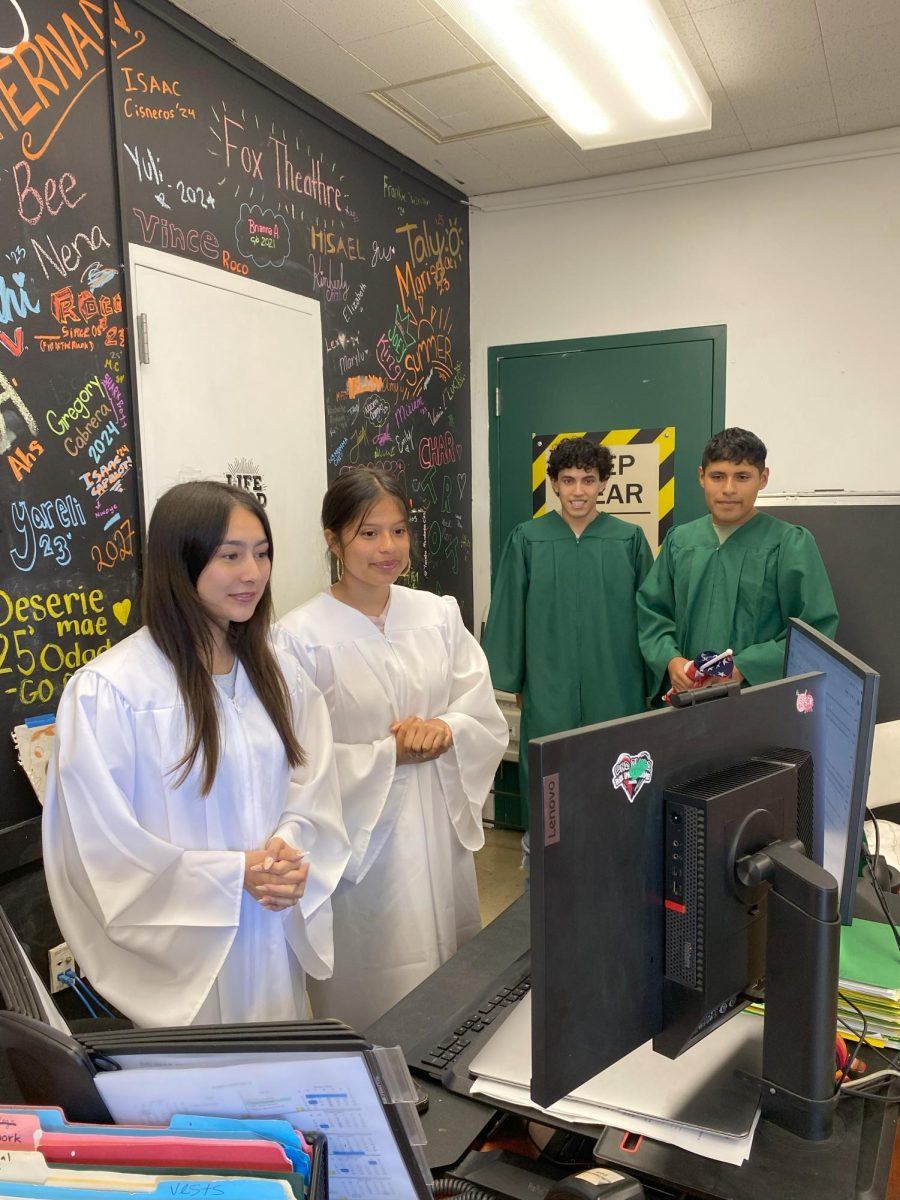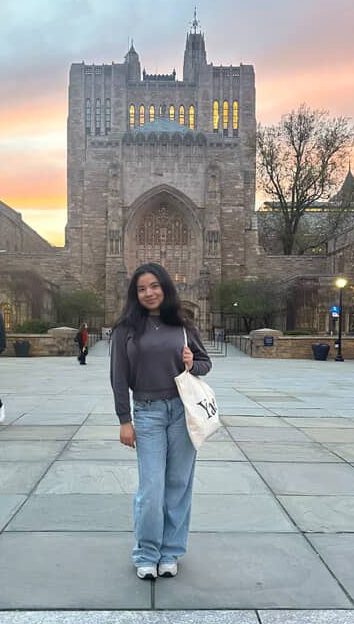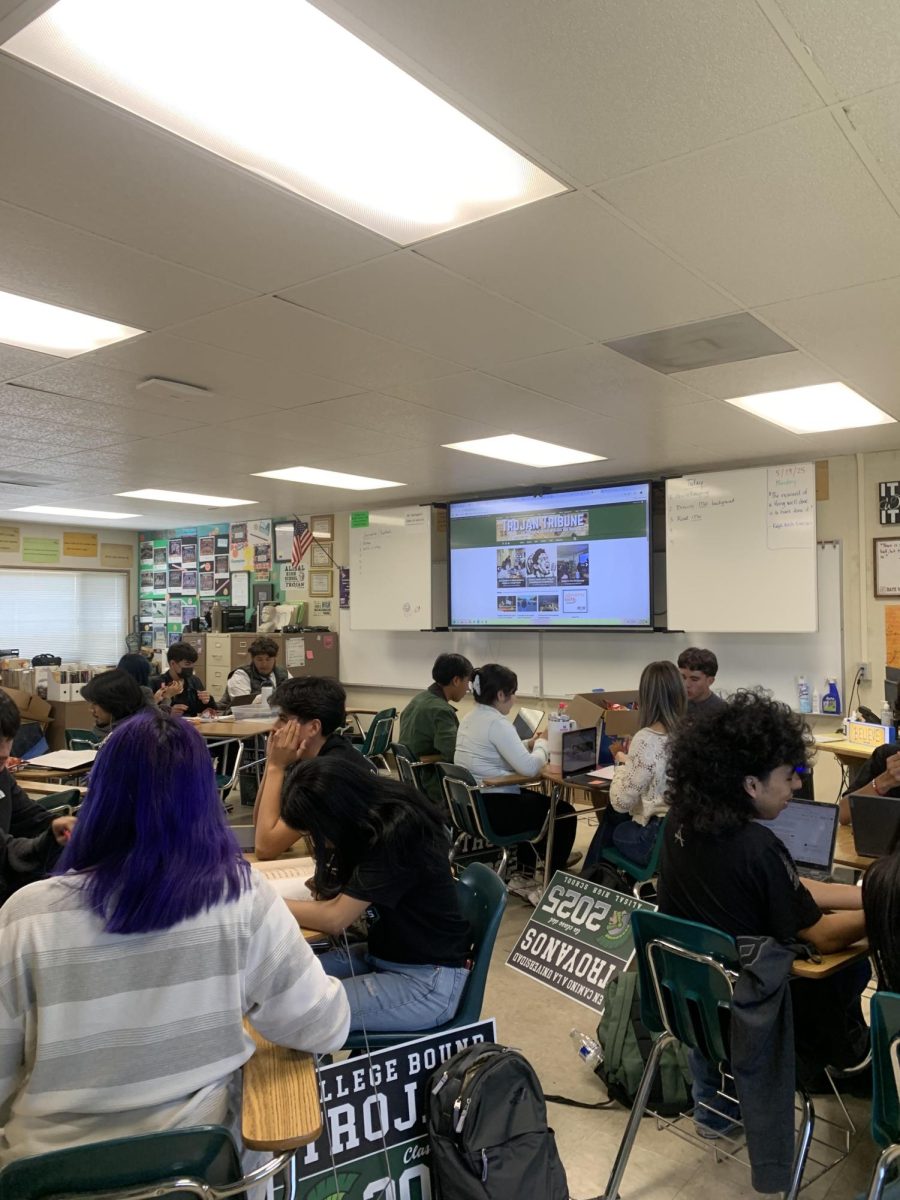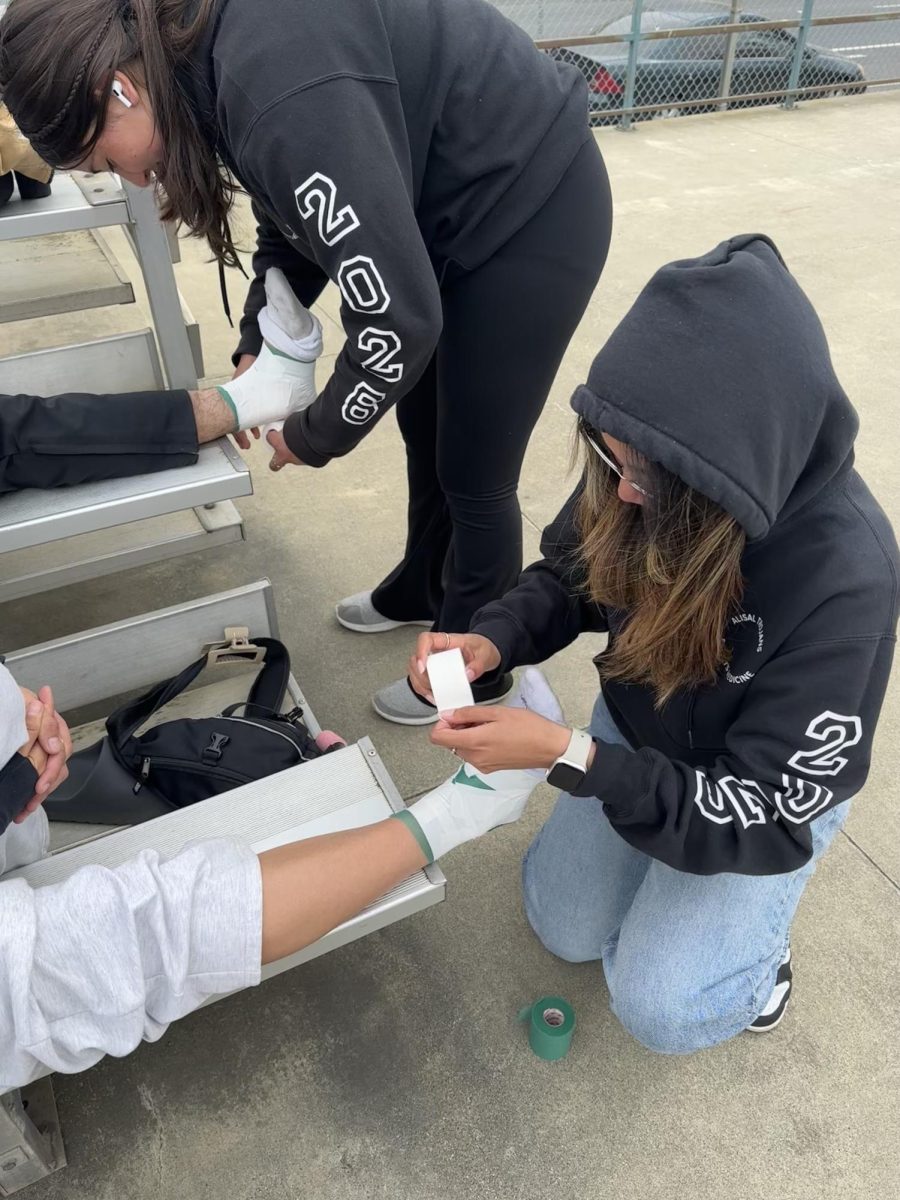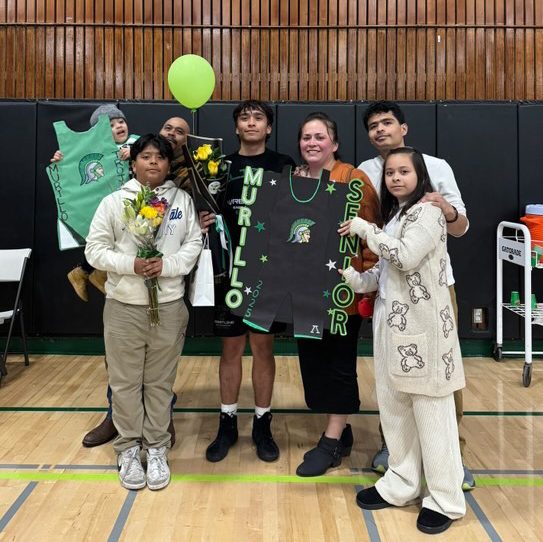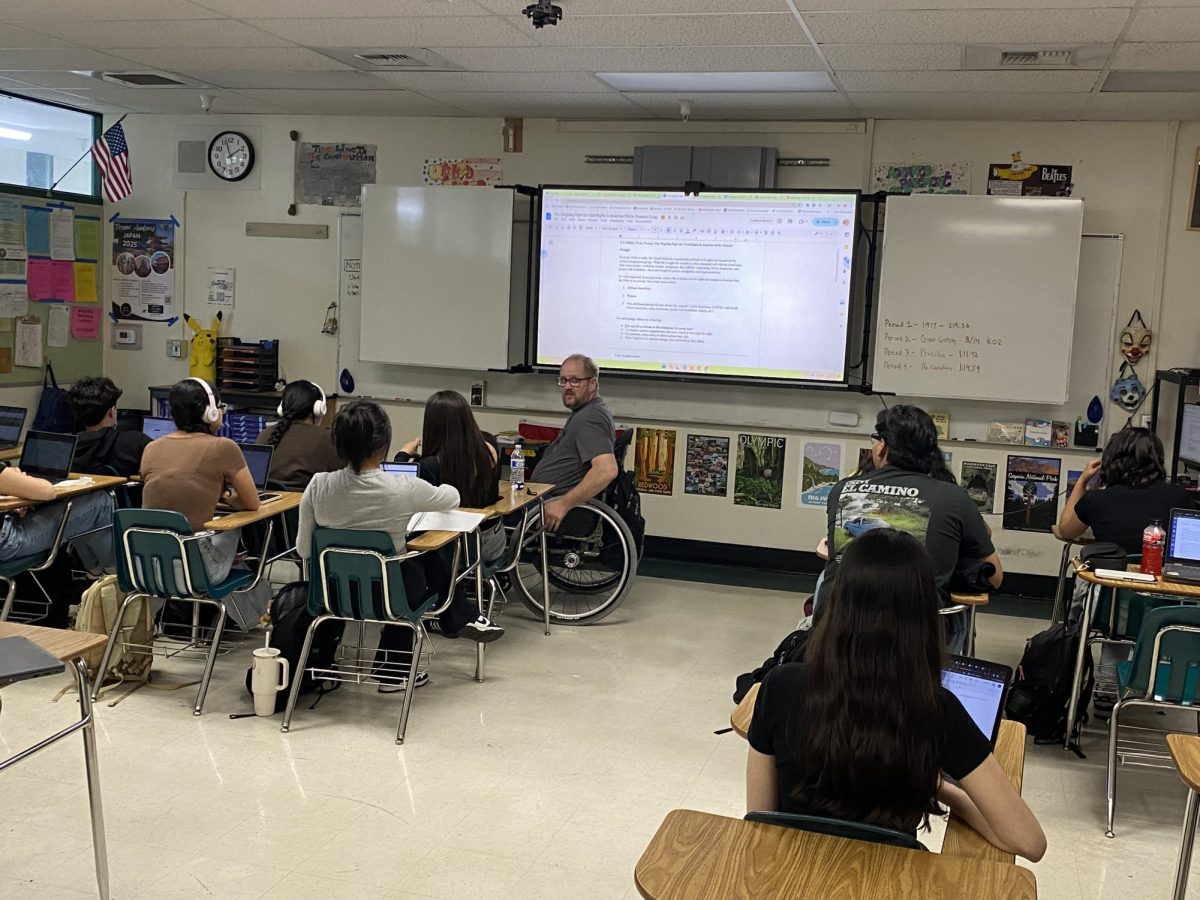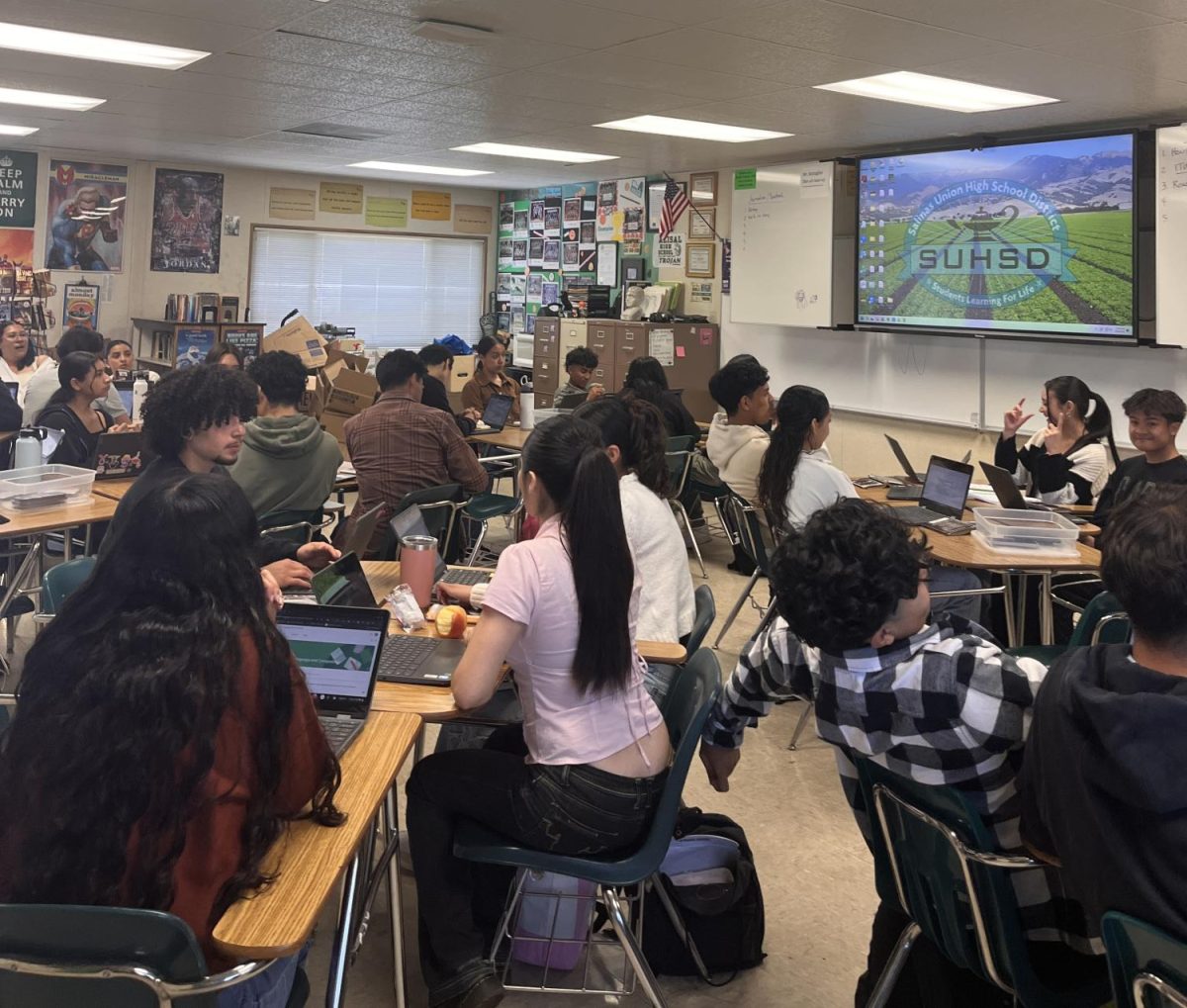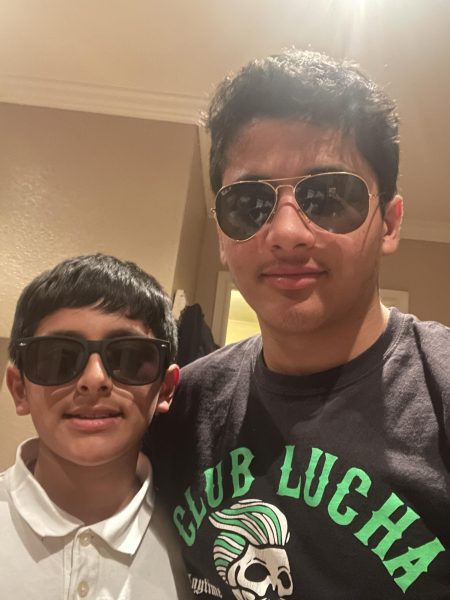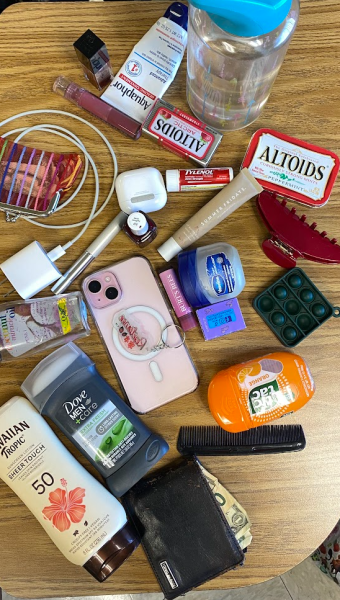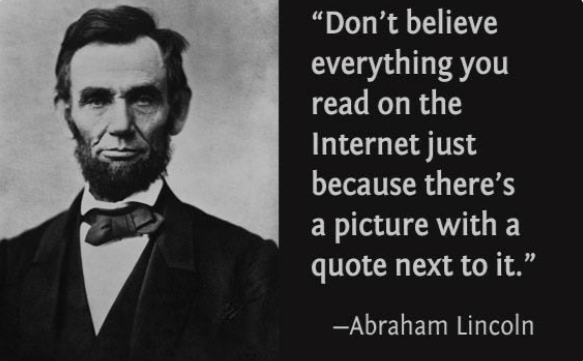The Talent Search
Ignacio Aguilera, Educational Advising Specialist, helps out an ETS student go over her A-G requirements in order to be on track to graduate.
Talent is the capacity for achievement and success but how is talent actually identified? Many talents go unnoticed here at Alisal because of the lack of programs and resources that students have access to. Inevitably, our student body keeps growing and growing making it harder for our counselors to work regularly with their students. Hence, many of our students don’t realize they have any unique skills for the real world. However, CSUMB’s Educational Talent Search works with students who don’t receive the necessary attention to develop those skills.
For 50 years, ETS has been able to offer low-income-first-generation students resources to get them college ready. The U.S. Department of Education has continued to fund the program over the years which is part of the TRiO branch. The Federal TRiO Programs consist of specific programs targeted at low-income students, disabled students, and first-generation students who need that extra push to guide them down to a postsecondary institution.
“As a program, we’re not necessarily recruiting students to attend CSUMB but we’re actually helping them go wherever they want to go. We have a big number of students staying local, going to a UC or leaving off to a CSU. Our students apply all around the area,” said Ignacio Aguilera, an Educational Advising Specialist. Twice a week, an Educational Advising Specialist works at one of the seven schools – Alisal, Gonzales, Greenfield, King City, Seaside, Soledad, and Watsonville – involved in TRiO. The counselors work with 1,166 students in total, with up to 200 students at each of the schools.
Senior Angel Jimenez, who has been in the program since his freshman year feels fortunate to be part of the program. “It was probably the best decision in my academic career,” Jimenez says, “ETS is that extra support that students are unaware they have access to.” Though many programs like AVID, GATE, and Health Academy serve students academically, many other students don’t have a program to depend on for support. Unlike Jimenez, others only have one counselor to go to who usually have too many students to work with. “Counselors do have a lot of students to help, that’s why I tend to connect more with the ETS counselor. He was also a first-generation student like me,” Jimenez says.
Though seniors are important to the program, underclassmen benefit as well. Sophomore Laura Ruiz says she has definitely benefited from the program. “Before I came to high school, I wasn’t aware of what college was really like. When I joined ETS, I learned more about college.Visiting the campuses exposed me to the differences of each college and the resources they have to offer.” Thanks to the field trips and informational events Ruiz has attended through ETS, she is now confidently able to identify UCLA as her dream school. “ETS has helped me narrow down my options,” Ruiz says.
ETS provides students with a variety of field trips, at least two per semester. They decide on the campuses they will visit based on the popularity of attendant grade levels. For example, freshmen visit a CSU, sophomores a UC, and seniors and juniors visit a private school. The fourth field trip of the school year is opened to everyone in the program and is not limited to a specific grade level. “We’ve had a chance to do summer field trips which consists of three days, two nights which is completely covered by the program,” Aguilera says. During the trip, the students visit six campuses. They also attend other cultural events to expose students to something they wouldn’t regularly do with their families. Senior Cindy Montoya, a 4-year ETS veteran, had the opportunity to attend this past summer’s field trip down south. “The trip was both educational and fun because it allowed me to visit schools in SoCal that I know I wouldn’t have done in my own time.” Montoya credits ETS for helping her build the tenacity to apply to schools that once seemed very far-fetched. “I’m very proud to say I’ll be attending UCLA in the fall,” Montoya says.
Apart from the educational field trips, the TRiO branch works to instill students with the act of giving back to communities. It holds a nation wide day to celebrate the program by giving back to the community called National TRiO Day. Last year, the local ETS took a field trip to the beach in Monterey on a Sunday and held a beach cleanup. “The beach cleanup was an eye-opener. I had no idea how bad the trash accumulation has become right here in our own backyard,” Montoya says.
Because space is limited and there is priority for freshmen, students are strongly encouraged to apply as soon as possible. “This way the students can benefit from the services for their four years in high school,” Aguilera says. Applications are available every fall semester and is open to all those who meet the requirements. The only requirements to apply for the program are to be first-generation, low-income, maintain a 2.0 GPA, and of course, attend one of the participating high schools. The most important thing a student really needs is the motivation to seek opportunities to better themselves for their educational career, which ETS is there to provide.
Your donation will support the student journalists of Alisal High School. Your contribution will allow us to purchase equipment and cover our annual website hosting costs.
